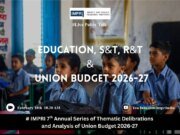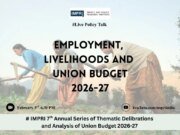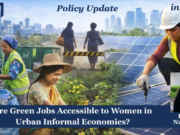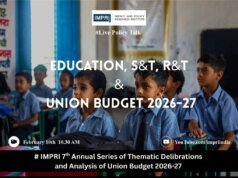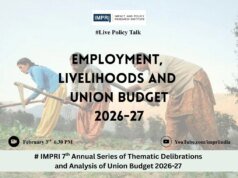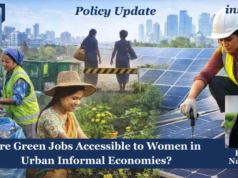Policy Update
Naushaba
On August 5, Sheikh Hasina resigned from her position as the longest-serving prime minister of Bangladesh. A month-long protest and clash between the government and the Bangladeshi students, later supported by the opposition led to her downfall. Despite being Internationally acclaimed for leading economic growth in Bangladesh, accommodating Rohingya refugees, and establishing a war tribunal in the country, her government was highly unpopular among its citizens.
(Source: Reuters/Mohammad Ponir Hossain)
The Fall of Sheikh Hasina
Sheikh Hasina was given the nickname of Asia’s Iron Lady, though it is a stereotypical term. She was not only the longest-serving Prime Minister of Bangladesh but also the longest-serving woman prime minister of the world. In the aftermath of her father’s assassination – Sheikh Mujibur Rahman – the founding father of Bangladesh and decades of military rule, Sheikh Hasina remobilised her father’s party, Awami League in the late 1880s and early 1990s. She first played a crucial role in bringing down the military dictatorship of General Ershad with other opposition parties. Soon after, she defeated the Bangladesh National Party (BNP) and became the prime minister from 2009 until her resignation in 2024.
The unpopular quota system of reservation for the Awami League party members in government led to her immediate downfall. Originally introduced by her father, the quota allowed more than 50 per cent of the reservation for people from different sections, of which 30 per cent was reserved for the descendants of freedom fighters. Ms Hasina annulled this quota system in 2018 after country-wide protests. However, in June 2024, the quota system was again reinstated by the High Court of the country. The decision triggered nationwide protests, first by students on university campuses, later on, joined by the opposition.
Owing to the deficit of democracy with economic issues was the major reason for her ouster. After the 2018 elections Ms Zia, the former Prime Minister and BNP chairperson, was sentenced to a five-year jail term, which was later extended to 10 years. The Leaders of Jamaat-e-Islami, the radical Islamist party, were also convicted and hanged by the War Crimes Tribunal. As a result, the BNP boycotted back-to-back elections. Some independent analysts also flagged irregularities in the election process over the years.
It was not only the shutting down of opposition but also the mistreatment of student protesters that added fuel to the fire. She unleashed excessive use of force to quell the protests and violent police forces against the Student protesters, killing almost 300 activists. She called the protesters ‘razakars’, a derogatory term which was used to refer to those who helped Pakistani troops during the Liberation War (1971). The ensuing violence on August 5 led Ms Hasina to resign from her post and exiled herself to India and later reportedly to the UK.
Present Status of Bangladesh
Bangladesh saw sustained economic progress, a jump in GDP per capita and substantial improvement in social indicators during her term from 2009 to 2014. Millions of people were lifted out of poverty which saw a decline from 11.8% in 2010 to 5.0 percent in 2022, based on the international poverty line of $2.15 a day, according to the World Bank. However, soon the economy faced severe challenges, mainly because of the COVID-19 pandemic and the Russia-Ukraine war. These events led to a slowdown in economic growth, the inflation increased up to 10 per cent and also became the country with one of the highest youth unemployment rates in South Asia — almost up to 20%.
Her resignation was later announced by the Bangladesh army chief, General Waker-Us-Zaman. In a televised address to the country and the world, with “all political parties…we will now go the president of the country, where we will discuss the formation of the interim government, form the interim government and manage the nation.” The Interim Government took oath on August 8 which is now headed by Dr. Muhammad Yunus, a Nobel Laureate and founder of the Grameen Bank. He has been given the super portfolio constituting land, transport, defence, aviation and energy. Dr. Yunus in his interview with Subhajit Roy confirmed that he won’t contest for election because he’s “not a politician.”
The Interim Government of 17 members constitutes people from different strata, sectors and gender i.e. from student representatives to economists to freedom fighters to human rights activists. The country and the world have a lot of expectations from such a vibrant and broad Interim Government. Although it is not clear about the role that Bangladesh’s army will play in the transition, which has directly ruled the country in the past. The chaos has not been settled down yet as there are reports of widespread violence against Bangladesh’s minority communities, Ahmedia Muslims and Awami League functionaries. Furthermore, there is no unity in the polity of Bangladesh, raising serious fears and questions for its future.
Impact on other South Asian countries
Bangladesh is not the first country in the region of South Asia to face such political turmoil. Sri Lanka in the year 2022, faced similar political turmoil, where its president Gotabaya Rajapaksha was forced to resign after nationwide protests. Interestingly, both countries had somewhat similar reasons and patterns for the chaos, the downtrodden economy caused by the COVID-19 pandemic and the Russia-Ukraine conflict. After Sri Lanka, the same pattern has been observed in Bangladesh and the concern here, just like the falling domino other South Asian countries can also see such widespread protests demanding rights unique to every country.
As was the case with the Arab Spring which first saw a spread in anti-government protests from Tunisia and then a change in the ruling government in the Arab world. Pakistan has never been a stable ground for either politics or economy. The country has decades of military rule and still runs the government from the back. Last year, Pakistan’s economic inflation skyrocketed to 38 per cent and forex reserves dipped low. Although the country has seen some stabilisation, there is no growth coupled with increasing unemployment and the burden of high public debt.
The small Himalayan republic of Nepal can also be on the radar due to its staggering politics. The country last month appointed its 14th prime minister in the 15 years since the establishment of Parliamentary democracy. Nepal has seen several alliances, counter-alliances, reversals and betrayals between the leaders of Nepalese politics over the years. In addition, there is rising unemployment among the youth of Nepal. Such estimated political upheavals can bring down the regional stability of South Asia which will not only hamper India but will affect the global south.
Concern for India and the China factor
Relations between India and Bangladesh under the prime ministership of Sheikh Hasina grew stronger. India’s position as the regional hegemon of South Asia has been questioned by other regional neighbours over the years with the rise of China, however, Bangladesh did not join this campaign. Sheikh Hasina was rather able to maintain a decent balance between both the rising powers by practising its strategy of Hedging. India’s closer ties with Ms Hasina not only quelled the anti-India sentiments in the country but also India did have to focus much on forging its relations with other regional parties in the country. Ms Hasina’s government in Bangladesh was a stable government for India as a regional hegemon as well as regional stability.
In another scenario, the BNP can win the new elections to be held later. India’s experience with the BNP during Khaleda Zia’s government from 2001-2006 had not been quite successful. During her period, the country saw violent anti-India clashes, and a rise in anti-India separatist groups while at the same time, China and Pakistan made inroads. Prime Minister Narendra Modi described Bangladesh as the key pillar of India’s Neighborhood First Policy and Ms Hasina was also the first foreign dignitary to visit India at the start of Modi’s third term as prime minister. After Hasina’s exit and India losing its strong ally in South Asia, there is a presumption that Beijing will expand its influence in Bangladesh.
India has to focus on re-establishing and re-affirming its diplomatic relations with Bangladesh with much more effort. After Hasina’s exit India can not choose to ignore the crisis in Bangladesh by claiming it is their Internal Affairs, with the change in power equations India will be forced to make much more effort, as “diplomacy has a much richer vocabulary rather than saying it is in their internal affairs, as stated by Mohammad Yunus.”
What’s Next?
With the appointment of a highly reputable and heterogeneous interim government encompassing youth, civil society and women, the pressure has increased. The Citizens of Bangladesh expect a lot from the interim government, specifically in terms of democracy. The formation of a new democratic government via free and fair elections is in their hands. The economy is still in disaster and the disunity in the polity of Bangladesh has not gone anywhere. To fix both the economy and polity at the same time is a magnanimously difficult task.
Furthermore, though Sheikh Hasina has gone into self-exile, the party has not gone anywhere and the news that Ms Hasina wants to return to Bangladesh is in the air again. The interim government should keep all the scenarios in mind and be prepared for any upcoming event. The role of the military of Bangladesh in this transition period is still doubtful, keeping in mind that Bangladesh had a military past. Bangladesh currently, is in a fresh and delicate state, every step should be taken with utmost care. Finally, every single effort should be taken to restore democracy in the country. A stable and democratic government in Bangladesh is a prerequisite for stability in the South Asian region.
References
- World Bank Open Data. (n.d.). World Bank Open Data. GDP growth (annual %) – Bangladesh
- Bangladesh Overview. (n.d.). World Bank Bangladesh Overview: Development news, research, data | World Bank
About the Contributor– Naushaba (she/her/hers) is a research intern at the Impact and Policy Research Institute and a postgraduate student of the Academy of International Studies, Jamia Millia Islamia. Her research interests lie in Global Politics, Gender Studies, Climate Change and Sustainable Development.
Acknowledgement– The author would like to express sincere gratitude to Dr. Arjun Kumar, Ms Aasthaba Jadeja, Ms Sarah, and Ms Shubhika Rathi for their invaluable contributions to this article. Their support, guidance, and expertise were instrumental in its completion.
Read more at IMPRI:
India and AI: Achievements, Ongoing Efforts and Future Prospects
Vision 2035: NITI Aayog’s Blueprint for Public Health Surveillance in India


